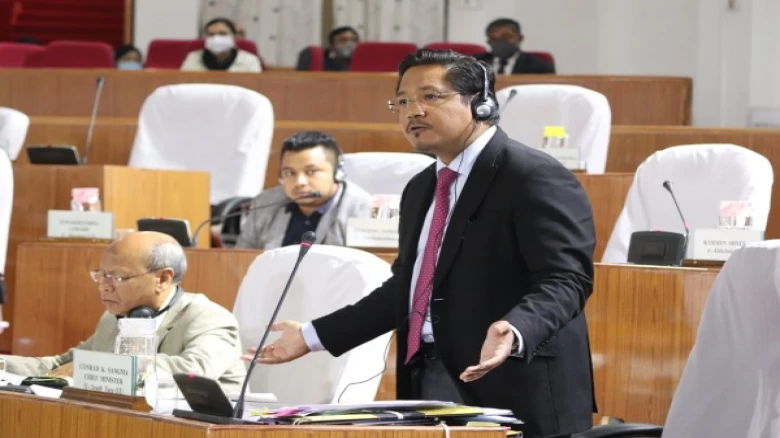More than 13 lakh people speak Khasi in Meghalaya, while 9 lakh people speak Garo, according to the 2011 census.
Digital Desk: Conrad K. Sangma, the chief minister of Meghalaya, addressed the assembly on Wednesday in Khasi and Garo, urging the central to add these languages to the 8th schedule of the Indian Constitution.
In order to send a clear signal to the centre that these languages should be added to the list of 22 other languages in the 8th schedule of the constitution, Sangma asked the speaker of the house, Metbah Lyngdoh, for permission to speak in both Khasi and Garo. He also said that members can speak, discuss, and debate in both of these languages.
"The inclusion of these two languages in the 8th schedule is not just about inclusion in the first place, it is actually a statement that the government of India recognizes the identity of the people in Meghalaya," Sangma stated while briefly discussing the inclusion of these two languages. It should be noted that 9 lakh people speak Garo and more than 13 lakh people speak Khasi in Meghalaya, according to the 2011 census.
A part of the population with a unique language, script, or culture has the right to preserve it, according to Article 29 of the constitution. Both the Khasi and the Garo languages meet the requirements to be listed among the 22 additional languages in the eighth schedule, claims this article.
Notably, Garo and Khasi have already been designated as associate official languages under the Meghalaya State Legislature Act 2005.
The Khasi tribe mostly inhabits Meghalaya and a few mountainous regions of Karbi Anglong in Assam, where they speak the Austro-Asiatic language of Khasi.
The Boro-Jingpko language of the Tibeto-Burman group, Garo, is spoken in the northeastern states of Meghalaya, Assam, Tripura, and Nagaland. Because neither Khasi nor Garo has its script, the Central Government is hesitant to incorporate these two languages into the 8th schedule.

Leave A Comment